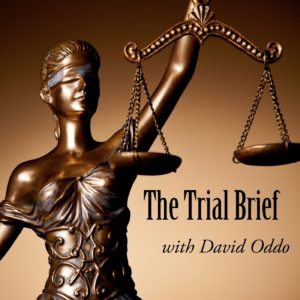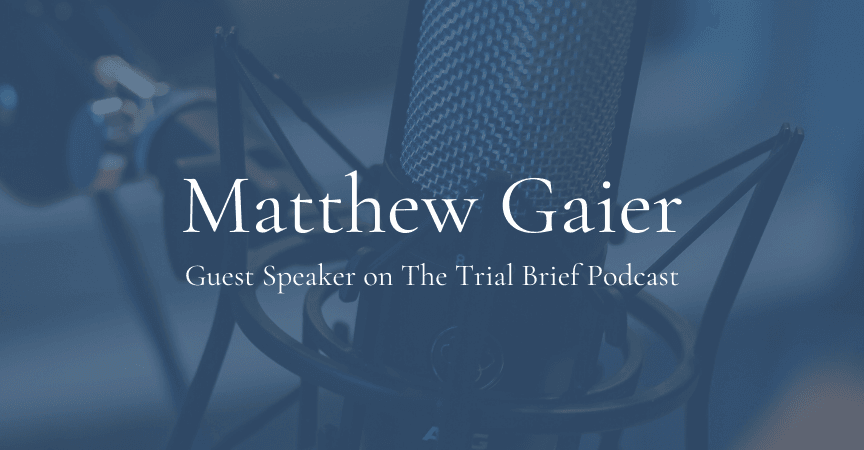 The Trial Brief Podcast provides comprehensive information for those who practice law… or simply want to understand it. Host David Oddo invited New York-based personal injury attorney Matthew Gaier on the show for an episode called Medical Malpractice in the COVID Era to discuss the law, the complications involving COVID-19, and approaching cases in the current medical malpractice field.
The Trial Brief Podcast provides comprehensive information for those who practice law… or simply want to understand it. Host David Oddo invited New York-based personal injury attorney Matthew Gaier on the show for an episode called Medical Malpractice in the COVID Era to discuss the law, the complications involving COVID-19, and approaching cases in the current medical malpractice field.
Matt Gaier is a partner at Kramer, Dillof, Livingston, and Moore who has extensive medical malpractice experience. He has briefed, argued, and won appeals in the largest medical malpractice verdicts in the state. He has seen his share of record-setting verdicts, working with Thomas Moore and Judith Livingston. Many people in the trial bar and lawyers in New York rely on him for his insight and analysis of the law and of legislation. Matt is a member of the part of the Nation’s Top One Percent of attorneys by The National Association of Distinguished Counsel, was on the Super Lawyers list from 2007-2019, and on the Best Lawyers List since 2016. Additionally, he is a fellow of the American Bar Association, on the board of directions of the New York State Trial Lawyers Association, and is the co-author of New York Medical Malpractice.
In this podcast, David and Matt discuss how during this pandemic, new laws have been passed that might have negative long term consequences for those who have been injured by medical negligence related to and non-related to this current crisis. Specifically, the law passed in NY on April 6th: The Emergency Disaster Treatment Protective Act. This law provides immunity to hospitals, nursing homes, administrators, EMTs, home health care workers, and other healthcare officials from potential liability arising from alleged actions and decisions related to the care of COVID-19.
Matt discusses what this law means for trial lawyers and their clients. He explains what medical negligence is, the difference between cases that happened in early march (the peak of the crisis) versus now, the difference between whether the patient was in a physician’s office or a hospital and how that might affect their case, and if people may overreach with this immunity when the treatment was not impacted by it. He ends the podcast by giving his advice to lawyers who are now evaluating COVID malpractice cases.
Click here to listen to the full podcast episode.

